.
.
“Opus One,” a story by Amadea Tanner, was a short-listed entry in our recently concluded 59th Short Fiction Contest, and is published with the consent of the author
.
.
___
.
.
photo by Gordon Parks/Library of Congress
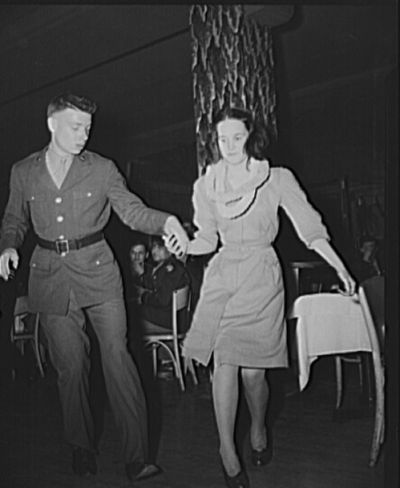
.
Opus One
By Amadea Tanner
.
…..The Dempsey Quintet pulsed eight to the bar, breathing life into the madcap melee. Walter Dempsey, center stage, had the crowd crazed for more, singin’ ‘bout rhythm itself so every soul on the floor could be swept up in the metaphor of the moment.
…..This was The Place, as hoppin’ as it was happening, where dancing was non-negotiable, and stamina sacrosanct. From the way patrons talked about it, you might think it was for the best of the best, and it was, but “best” had a new meaning on those spring-loaded floorboards. No one who was anyone in the real world would have dared step over the threshold, not if they knew where life was taking them. The Place was for the stranded, the dreamers, the transitory, where lost souls could find direction in their soles; all the working-class girls with their one night off and the boys who couldn’t cut the draft. All together they were a heap of hepcats hyped on their good fortune, fortune savored particularly because under any other circumstances it would be anything but.
…..So they danced all night, because they were free to do so.
…..Because it was all they could do.
…..The band took a brassy breath with the end of the song and then took it slow into the next. The trumpeter stepped forward, filling the room with a sound that was soft and forlorn until the drums tapped out a swift rhythm in answer. It was the tempo of a heartbeat aflutter, like so many beating just so on the dancefloor, bringing the floor alive with the sentimental sound of dreams.
…..But it was the dreams in one girl’s eyes that gleamed beyond all others with the force of her longing for them to come true.
…..She sat coyly enough to suggest she’d like to dance but ignored the contents of the crowd. A band of soldiers had crashed the party an hour ago and the regulars didn’t have the heart to throw them out. And the soldiers, well, they knew they didn’t belong, but on the eve of being shipped overseas they didn’t belong anywhere, really. Some of the gals didn’t hesitate to wrap themselves in the arms of a man in uniform, but this gal preferred to keep her distance from posers in pomp and pomade.
…..One snuck into her periphery, however, and extended a hand with such presumption that no words accompanied the gesture. She met his gaze, challenging him to speak, so he said, “May I have this dance?”
…..“That mean I’m supposed to dance with you?”
…..“I’d like very much if you would.”
…..“Fine,” she sighed. “If you promise to remember me.”
…..The soldier wanted to say he couldn’t possibly forget her, that his memory had become as sharp as if he was seeing his life flash before his eyes, because he knew this was all he would have. He knew she knew that too, but she probably heard that from every man in his monkey clothes who asked her to dance. She must be getting awful tired of the melodrama.
…..She took his hand and looked past his shoulder as his other fumbled for her waist. They were quickly swallowed up with the tide of dancers, reminding the girl that if she wasn’t remembered, she could very easily fade into the worn fabric of the world, a single stitch irrelevant for wont of a bigger picture.
…..The boy murmured with rehearsed precision, “What’s your name, Darlin’?”
…..“That’ll do just fine.”
…..“I can’t remember you like that. What do they call you ‘round here?”
…..“Truce. Short for Chartreuse, but let’s just skip the formalities.”
…..But he grinned, beseeched. “Where’d you get a name like that?”
…..“That’s the trouble, isn’t it?” she muttered. “With a name like mine, that’s all anyone ever wants to talk about. I’m getting awfully tired of sharing my origin story in the span of a song.”
…..The real trouble was that the extent of her story could fit into the span of a song. Chartreuse Evans was told her name came from a mother who was eccentrically French, and who shortened the darned thing to “Truce” because it seemed like a fine thing to come between a man and a woman in a perpetual state of war. But that wasn’t enough to stop the fighting, and when good ol’ Pops went off for good and died in the real war, somewhere in a French foxhole, Truce’s mother found this to be a sort of poetic justice. As a peacetime peace offering, she handed young Truce off to her in-laws and returned to La République, leaving Truce to grow up in a small town in a big world, where she developed the hint of a drawl and the gradual realization that life was a series of questions without answers, a state of being that cultivated within her a desperate obsession to uncover something greater. And that brought her life up to the present moment, in the arms of another clammy soldier boy, at another Friday night send-off dance in the midst of another war.
…..“You from around here?” the boy asked, to prove he was an ardent conversationalist in lieu of his lack of rhythm. Truce finally looked him in the eyes, and he was frozen in place, because her gaze was not the kind you could look away from.
…..“I wish I could say I was just passing through. Because life’s a journey, right? At least I’ve always dreamed that’s what it’s supposed to be.”
…..The boy looked at her strangely, a glimmer of recognition surfacing to consciousness, but by the time the song ended, all he managed to say was, “You’re good. You really know how to follow.”
…..Her opinion of him flickered to flagrant neutrality. “That’s because I let you lead.”
…..“Let me lead one more?” He failed to hide his pride—of course he thought her words a compliment. But she had already abandoned him to melt into the tangle of cotton, brass buttons, and perfumed extremities that made up the surrounding crowd.
…..It was a well-worn understanding, she thought, that men led and women followed, that a follow was only as good as her lead, and that even with a bad lead, a good skirt with a grand swish could save them both. But what was less often acknowledged was the wizened telepathy that came with being flung across a dancefloor by every so-called man in town. There were only so many moves in the stockpile; after dancing long enough, a follow could recognize what a lead planned to cue even before he’d thought it through himself. One might interpret that the follows were the ones actually leading; they just couldn’t take the blame or claim the glory for themselves.
…..Truce could lead or follow as good as any. From afar, she was indistinguishable from the rising tide of feminine wiles—coiffed curls, rouged lips and creaseless skirts. It was only when she turned and looked right at you that you couldn’t look away. There was something in her eyes, something deep, dark, and strangely inviting. They were grey eyes, cold, but forgiving, glistening with a look halfway between lost and lonesome, a look she only ever used to get when caught up in a crowd.
…..Now this look was with her all the time, perhaps because Truce now spent every night dancing. It was the easiest way to get away when you had nowhere to go.
…..But a gal could only escape into a song so many times. She blamed her bitterness on the new boys passing through town who didn’t know a thing about left from right, or right from wrong. It was so easy to blame anyone—anything—everyone—everything. That was what they all did because there was something dark and ominous forcing them to wait, for big things like peace and even little things like love. It was the waiting, perhaps, that left Truce feeling starved and unlucky. She had waited all her life to grow up so that she might start living as a woman in the world, only to ripen in time for life to go stale as the whole world cowered in the shadow of the moon.
…..Truce wandered over to the bar in the corner, where Karen Braddock was sliding the GI’s Gin Rickeys across the counter. Karen was a pleasant barmaid to the regulars, but tonight with soldiers crowding round, she was treating the gig with the somber decorum of a real Charon, ferrying lost souls a little nearer to their doom. Granted, the way the boys were drinking, they were doing a pretty good job of ferrying themselves.
…..They drank and cavorted with equal abandon, their laughs the bright peals of immortality since enlisting meant they were guaranteed heroes. It made nobodies into somebodies. It gave them all a living legacy with a cause to die for.
…..More importantly, it gave them a purpose. And though these boys were off to seek an untimely demise, Truce envied them, because they had tapped the wellspring of greater meaning, even if it was only temporary. Because if they died, they died for a reason. These drunken fools had a reason, and it had been handed right to them.
…..Meanwhile Truce was stuck on the sidelines. Maybe that made her lucky. Why, then, did it make her feel sick? She could no longer tell if she was green with envy or remorse.
…..“You really ought to stop looking melancholic in public places, Trucie,” Karen interrupted. “It’s not good for your image.”
…..Truce smiled half-heartedly in response.
…..“What are you drinking?” Karen asked.
…..“Anything,” Truce muttered. “I need a major slake.”
…..Karen smirked as she began to mix some kind of elixir. “The boys have been talking about you. I’d be jealous if I didn’t already recognize the curse of celebrity.”
…..“If the boys had a care,” Truce shot a glance towards the men in uniform at the other end of the bar, “they could do me the honor of dancing in time.”
…..Karen nodded. “Amen.”
…..“How’s Harvey?” Truce asked.
…..“Oh, you know. Wants to propose, but I told him there’s no point getting married if he won’t be coming back.”
…..“Above collecting a widow’s pension?”
…..“It’s not that, it’s the darn principle of the thing. If he wants to make a vow, it sure as hell better be one he can keep.” Karen sighed, “Till death do us part sounds a bit foreboding anyway, don’t you think?”
…..“Glad to see you’ve come to your senses.”
…..“I don’t think I have. It’s just that war’s gone and stripped all the romantic notions I had to spare. Sometimes I wonder if rationing has done a number on my emotional capacity; I’ve become a real pragmatist.”
…..Truce smiled a real smile at that. “Funny thing, isn’t it? They’ve all turned into saps and we’ve become heartless.”
…..“I think all this sentimental swing is a government ploy.”
…..“To keep up morale.” Truce agreed.
…..“And keep our poor troops running on the sheer pangs of heartache. It’s sickening. That’s why they don’t even bother asking us to dance, isn’t it? We’re just a guarantee. Five minutes with a pretty girl ’cause they might not ever see one again. Does that make them fools or heroes?”
…..“A bit of both, I should think,” Truce sighed, accepting the cocktail Karen slid across the bar top. She pursed her lips after a tentative sip, then gulped the whole thing down. “Anyone operating with good sense never gets remembered.”
…..She made the mistake of glancing once more towards the soldiers, where one of them had been waiting to meet her gaze. He took her eyes as an invitation to step forward and inched closer with the looks of a long list of ticklish questions on the tip of his tongue, the first of which he murmured lamely:
…..“Would you like to dance?”
…..How polite of him to ask, she thought, but what a funny question that was. Truce was more accustomed to “May I?” and “Shall we?” which were inquiries that implied an answer in the affirmative. Perhaps it was simply redundant to ask a gal at a dancehall if she would like to dance; Truce realized she preferred the presumption. It kept her from asking things of herself. Did she want to dance? Did she really?
…..She nodded instinctively, because that’s what she always did. But as the soldier led her to the edge of the dancefloor, Truce realized she didn’t really wish to dance at all. She’d danced too much for too long, every night for as long as she could remember. It used to feel good, it used to make her smile. But now, Truce realized her soles had begun to ache something fierce.
…..All through their twisting and swaying to the music, she could only think of how much she didn’t really want to dance with this soldier, which got her thinking about all the soldiers she’d been with since the open call to enlist. She hadn’t wanted to dance with most of them, but she had forced herself to laugh when they’d tried cracking jokes, and she had been a good sport about kissing the ones who claimed they’d never been kissed. At least she never intended to make good on any of the hasty proposals she’d accepted just to make their askers feel important before they crossed an ocean. She hadn’t wanted to do any of it, but guilt, pity, civic duty made her do it.
…..No, those were just excuses. Even if she hadn’t wanted to do any of those things, she had done them anyway, because she didn’t know what she wanted. Swallowing up someone else’s passion, hearing about someone else’s dreams at least got her thinking that she could do something too. And she knew she could do it, if only she knew what that something was. But in a town where nothing happened, in a life where, even on the dancefloor, she had only ever followed someone else’s lead, she didn’t know what else there was to do. This was a town where people waited for life to happen to them, then grew old with waiting and finally got around to little things so they could at least say they had done something for themselves. Dancing had been a good way to pass the time, but now enough had passed that Truce was starting to feel time itself pass her by.
…..The trick, she supposed, though had never achieved, was contenting oneself with dreams that could be attained. The gals around here were only working to wait for their boys to come back so that they might fulfill their dreams of a family. And those boys were off dying for ideals in hopes of coming home to a job—any job—so that they might be the man of a house. There was nothing the matter with dreaming dreams such as those, and Truce suddenly admired everyone else immensely for having the courage to seek contentment. Maybe she envied them a little too, for knowing what they wanted. All she knew for herself was that nothing was ever quite enough.
…..And people everywhere all the time said it was wrong to want more, but wasn’t that what everyone was fighting for, in this war and every one before it? Well, she was sick of people, sick of these people. She wanted to meet new ones in new places with new grand ideas. This would have been an easy feat, considering she had been stranded in the same town for the entirety of her life. But now, all over the country, suddenly everywhere was the same, everyone doing the same things, thinking the same ideas, rallying to the same cry. Perhaps that was why her eyes shone the way they did; lost, lonesome, finding only contempt in the crowd’s contentment.
…..Truce only wanted, somehow, to be remembered like all these boys whose names would be etched into history. Thinking about all the numbers going into this fight was enough to make anyone feel small. But knowing that she would never be included among those ranks, it might as well be as though she’d never existed. What was it all for then, if you wouldn’t be remembered?
…..As Truce was dancing with the latest soldier, the Dempsey Quintet struck up an especially merry tune. But it was eerie to have such light-hearted notes pierce through the heaviness in the air. It always amazed Truce, how a sound could be something a body could feel. Beyond rhythm, beyond emotion, some melodies could reach so deeply they seemed to stir the soul. Truce wondered if that was why everyone had souls in their feet too.
…..Sick of being pensive, she looked up at her dance partner and asked to be polite, “What’s your name, Soldier?”
…..“Johnny.” He smiled. “And yours?”
…..“Chartreuse.”
…..His smiled broadened. “That so?”
…..“Don’t you forget it.”
…..“How could I ever forget a name like that?”
…..She stared at him for a moment; there was that usual ironic, half-joking hint in his tone that they all spoke with. But half-joking meant half-serious. Truce thought about all the boys she’d been with swapping stories overseas about a gal back home called Chartreuse. She supposed it was a name to be remembered.
…..And that was something.
…..It was hardly anything, but it was better than nothing.
…..And though she was sick of it—all of it—Truce let this soldier hold her close, and let another one take over when a new song began. She danced with all of them, late into the night, just as she always did.
…..Because it was all she could do.
.
.
___
.
.

Amadea Tanner is a writer and filmmaker born and raised in Los Angeles, but currently based in Baltimore. A graduate of Chapman University with bohemian degrees in screenwriting and French, she is partial to witty banter, philosophical musing, and toeing the line between drama and comedy. This story is her literary debut. You can find her in the ether @amadea_cadence.
.
.
Listen to the 1941 recording of the Glenn Miller Orchestra performing “[There’ll Be Bluebirds Over] The White Cliffs of Dover,” (featuring vocalist Ray Eberle)/[RCA]
.
.
___
.
.
Click here to read “His Second Instrument,” by Dave Wakely, the winning story in the 59th Jerry Jazz Musician Short Fiction Contest
Click here to read “Mouth Organ” by Emily Jon Tobias, the winning story in the 58th Jerry Jazz Musician Short Fiction Contest
Click here to read “Cottonmouth Stomp,” a short story by Greg S. Johnson
Click here for information about the upcoming Jerry Jazz Musician Short Fiction Contest
.
.
.






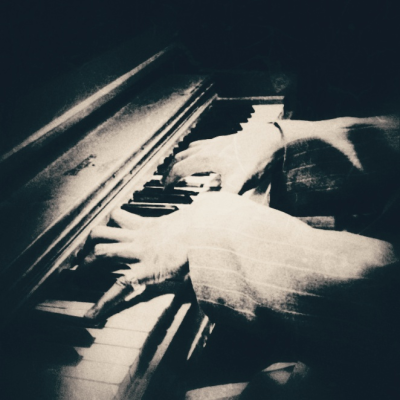


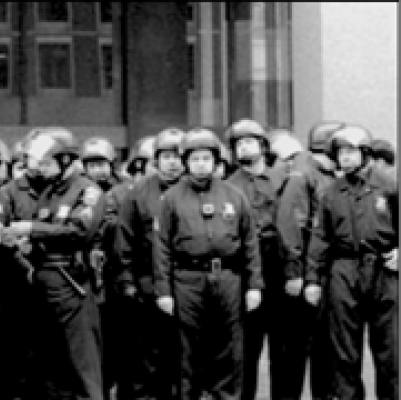










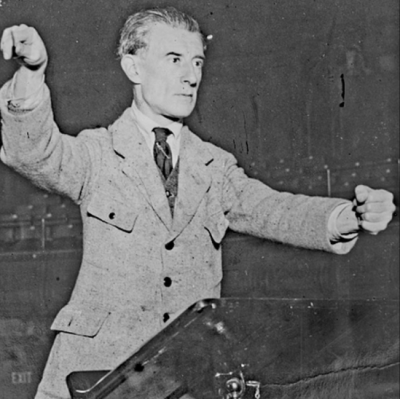

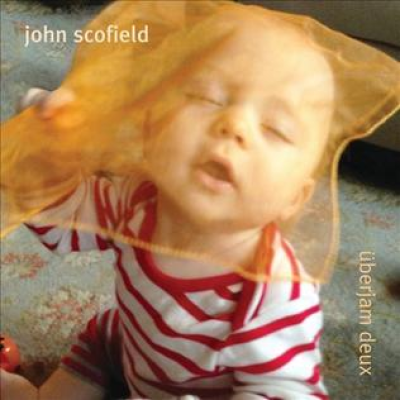






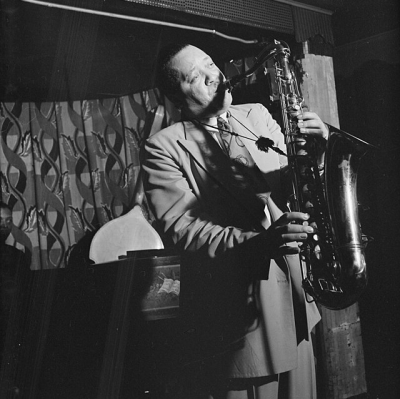













Short stories are my favorite literary vessels, and this one delights me me for all of the same reasons. The careful quick and precise character development, as well as the pace are metered out perfectly. Being a dancer, and loving the history and culture of the specific era this story is set in adds another layer of appreciation for me, though I feel the lead character is so real and vulnerable that everyone can relate to her. I look forward to reading more stories from the author Amadea Tanner.